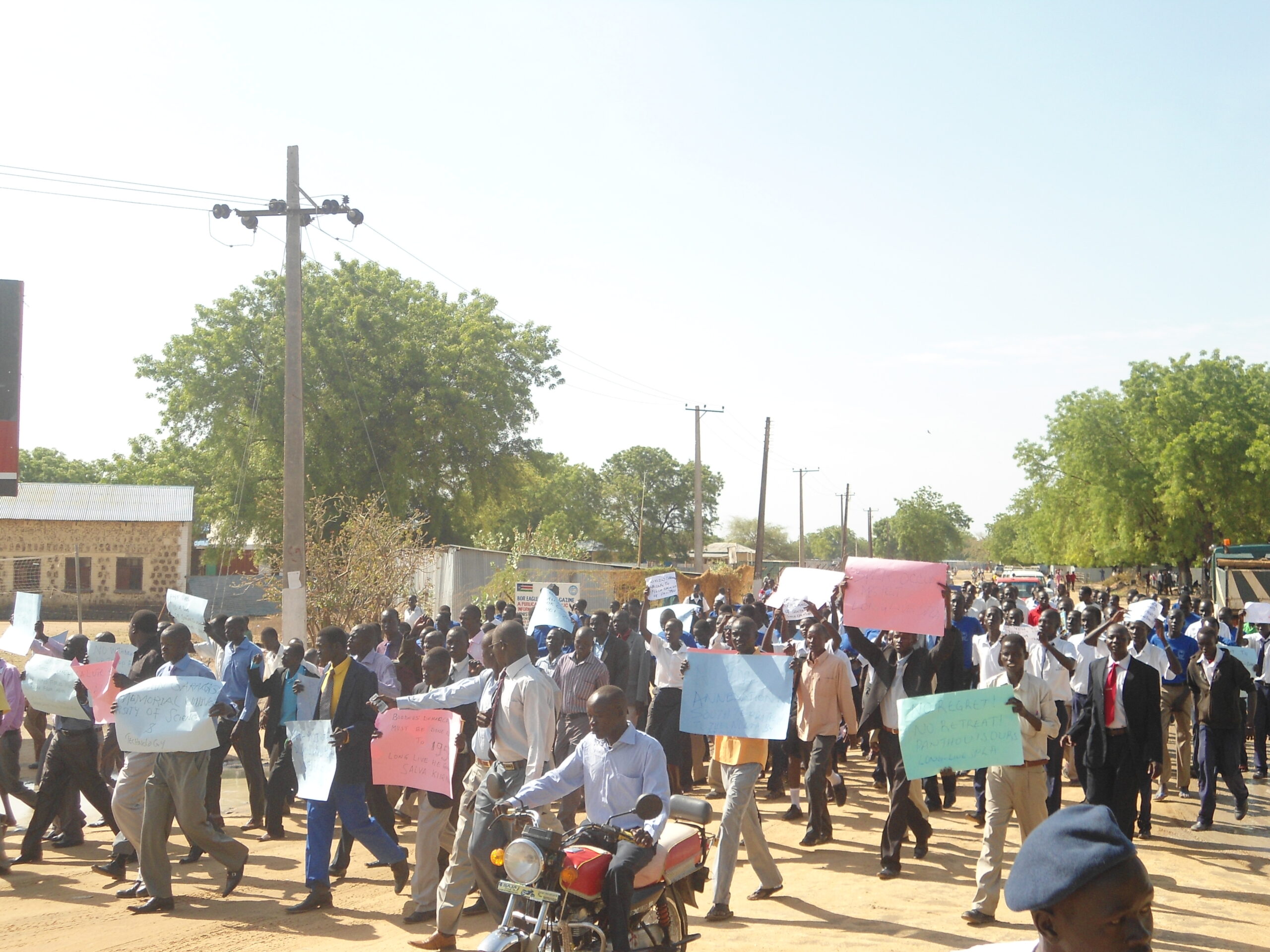Jonglei students call for UN chief to apologise for ordering SPLA out of Heglig
April 13, 2012 (BOR) – Students from Dr. John Garang Memorial University in Jonglei State have called on UN Secretary General Ban Ki-Moon to take back – what the country’s president describes as – “an order” that South Sudan remove its troops from a disputed border area.

Heglig, which the international community recognise as being in Sudan, has been occupied by South Sudan’s army (SPLA) since Tuesday. Juba says that it acted in response to aggression by the Sudan Armed Forces and has refused to leave the area unless certain conditions are met.
On Thursday, South Sudanese President Salva Kiir told parliament that the UN chief along with other world leaders had phoned him to persuade him to back down and remove the SPLA from Heglig.
Kiir told the members of South Sudan parliament he would not order a withdrawal, despite being called to do so by the UN, African Union, European Union and individual nations.
“I told him [Ban Ki-Moon] you do not need to order me because I am not under your command. I am a head of state accountable to my people and do not have to be ordered by someone I do not fall under his direct command,” said Kiir .
“I will not withdraw the troops,” he said.
Kiir argued to Ban that the international community does not equally give same concern when Khartoum assaults them and gave an example when the Sudanese army moved into Abyei, another disputed border oil region, in May 2010.
The South Sudanese leader said he told Ban that if Khartoum does not pull out its army from Abyei he would send his troops to fight them, striking a much firmer tone than his previous “no return to war” emphasis of previous weeks.
On Friday, April 13, the students staged protest against Ki-Moon’s reported statement, calling him to reverse it and apologise to the young nation. They handed a letter to the Jonglei state governor, Kuol Manyang, to addressed to president Kiir.
The letter repeated Kiir’s argument that the “UNSG has no mandate under the UN charter to order the Head of state and government such as Your Excellency to withdraw his troops from an area which has long been known as belonging to the South”.
The war on the Sudan-South Sudan border has raised fears of a return to all out conflict between the two nations only nine months after partitions and just over seven years since a landmark peace deal ended decades of conflict.
Since late March South Sudan says that the Sudan Armed Forces have continuously bombed Unity State targeting oil fields and civilians. Sudan denies this as well as Juba’s accusation that they used southern Khartoum-backed militias in their ground assaults.
Khartoum accuses South Sudan of still aiding its old allies in the Nuba Mountains where SAF and fighting the SPLA-North who are in coalition with the three biggest Darfur rebel groups to overthrow the government.
The students expressed their unhappiness that the UN head had not issued that same warning to SAF when the northern military overran the disputed territory of Abyei in May 2011.
Unlike Heglig, Abyei has special status and a referendum is supposed to decide whether it becomes part of South Sudan or remains in Sudan. The vote did not go ahead over political differences and there has been little progress on resolving the fertile oil-producing region’s status despite a UN force being deployed there.
“We are fully angered and disappointed by his statement and call for an immediate withdrawal of his statement and apology to the President of the Republic of South Sudan as well as the whole Nation of South Sudan,” the letter said.
The students said they are ready to defense their territory if the border war intensifies. The speaker of Jonglei Assembly, Peter Chol Wal, who received the protesting students, said the assembly is in full support of students’ opinion.
Jongeli governor Kuol Manyang said he was happy to hear the youth expressing their readiness to defend their country from foreign aggression.
“I am extremely happy to see our youth being concerned about the issues of our country. Youth are the protectors of the nation”, he said.
Kuol continued “And if the youth are sleeping, then everybody will sleep,”.
“After the signing of the CPA, we thought that was the end to the fighting, but Khartoum rulers delayed the drawing of the boundaries,” he said. The 1,800 kilometre border was supposed to be demarcated during the six years of the 2005 Comprehensive Peace Agreement.
After the border clashes erupted Khartoum announced it was pulling out of talks with Juba, which were being held in Addis Ababa and chaired by the African Union (AU).
Oil and border demarcation and security were two of the main topics under negotiation.
(ST)
